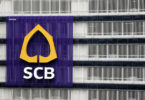Today Deutsche Börse’s post trade arm Clearstream announced that its D7 digital securities platform has surpassed €10 billion ($11bn) in issuances. We believe the figure is comfortably more than €11 billion.
So far D7 has been used mainly for two types of issuances, large digital bonds and structured products.
State owned KfW has launched two large digital bonds. In June it issued a €4 billion three-year bond issuance, which was expanded to €5 billion in September. Today Clearstream reported there’s another KfW bond this month of €3 billion over seven years. So that’s €8 billion in just two issuances. In 2022 KfW also issued the very first D7 digital bond for €20 million.
At the other end of the spectrum, D7 is used for issuing around 15,000 structured products per month, with a cumulative figure of around 250,000. These are essentially bespoke derivative-like securities. By mid June the volume was around €3.5 billion.
Some might argue that these are not blockchain securities. Germany’s electronic securities law, eWpG, distinguishes between securities on a centralized registry versus a decentralized registry. Almost all D7 issuances so far have been via the centralized registry.
But that’s the same as many of the blockchain-based digital bonds issued around the world. All of the issuances on the SIX Digital Exchange (SDX) are held by the central securities depository (CSD).
At a technical level, the D7 platform uses DAML smart contracts, and the latest version of DAML includes the Canton blockchain. Hence, the securities are blockchain-based, even if it’s centralized. Rather than the ledger, what really matters is the automation and efficiencies enabled through smart contracts.
ECB DLT settlement trials
Achieving these efficiencies is what has encouraged the European Central Bank (ECB) to launch DLT wholesale settlement trials.
D7 was used as part of a simulation of a centrally cleared intraday repo transaction involving DekaBank issuing commercial paper. DZ Bank was the investor and sold the collateral to JP Morgan. The transaction took place via Eurex Repo’s F7 trading system. Settlement took place on the D7 platform with the cash leg payment simulated with the Bundesbank’s Trigger solution.
This simulation is highly relevant as the Eurex Repo F7 trading system plans to launch intraday repo in partnership with HQLAᵡ for collateral and Fnality for tokenized GBP. That’s subject to Fnality getting approval from the Bank of England.
A second trial involved a real issuance of a €50 million commercial paper by the state of Saxony-Anhalt on D7, involving Dekabank and Natwest Markets. Settlement used the Trigger solution.
Clearstream also took part in a real trial using the French wholesale CBDC for settlement. In that case, there was a small €1.1 million commercial paper issuance by ABN AMRO on D7.
Finally, in July D7 hosted its first decentralized bond issuances as part of the ECB trials.
“The ECB trials have been very successful so far and the experience gathered has been invaluable. Clearstream calls for a frictionless lead-over of the proven trial infrastructure into a transitory solution. This would serve as the nucleus for developing a stable long-term solution to advance a competitive digital financial ecosystem in Europe,” said Jens Hachmeister, Head of Issuer Services & New Digital Markets at Clearstream.
His wish might come true. In a recent speech, ECB Director Piero Cipollone said the Eurosystem is exploring how it can build on the trials.






